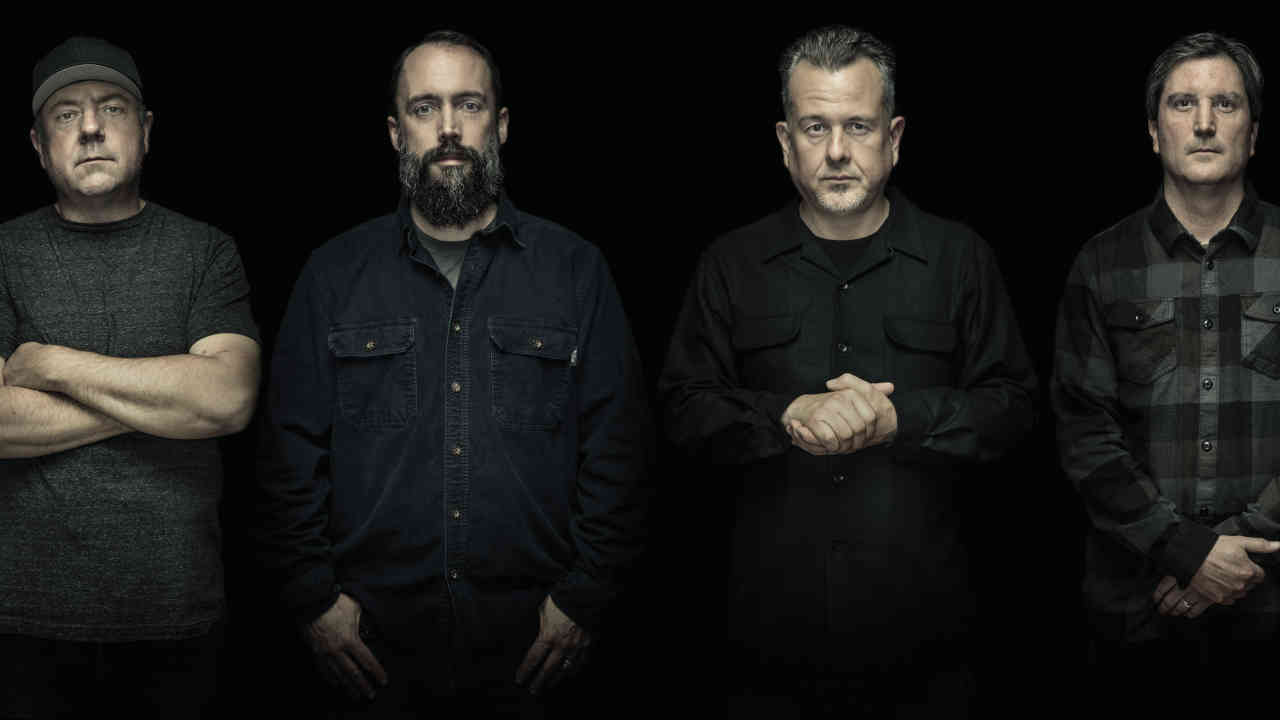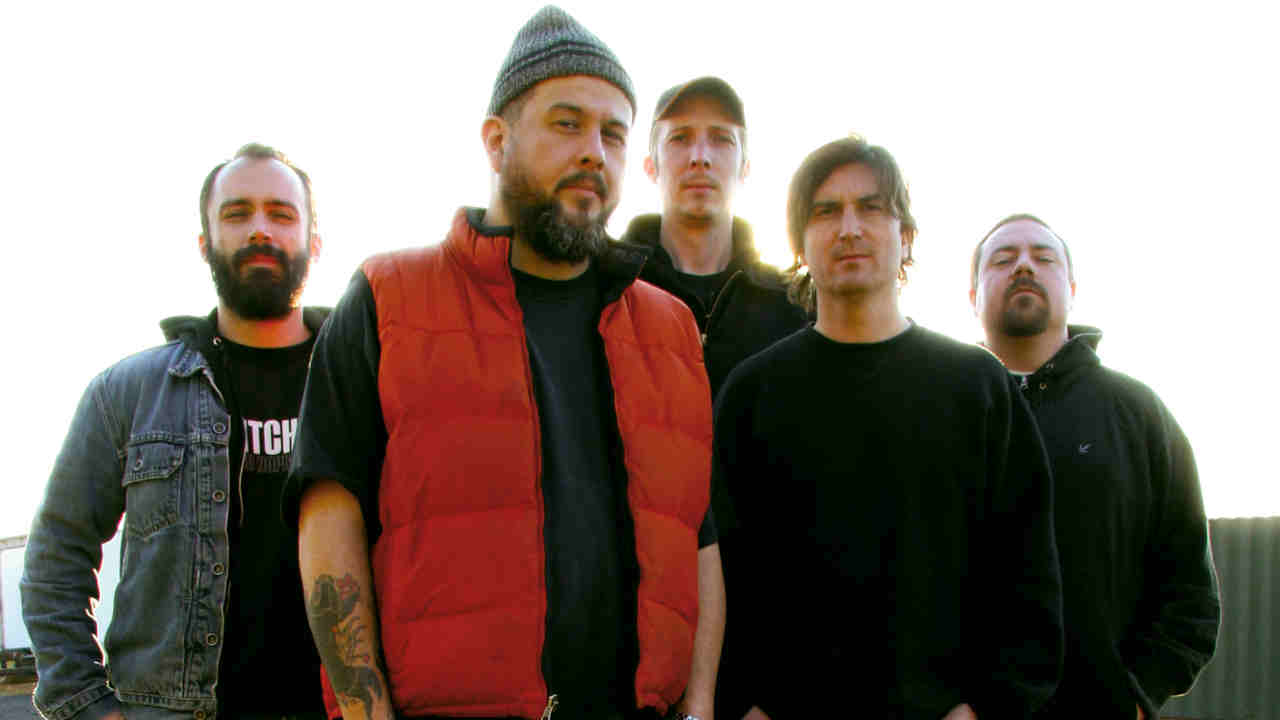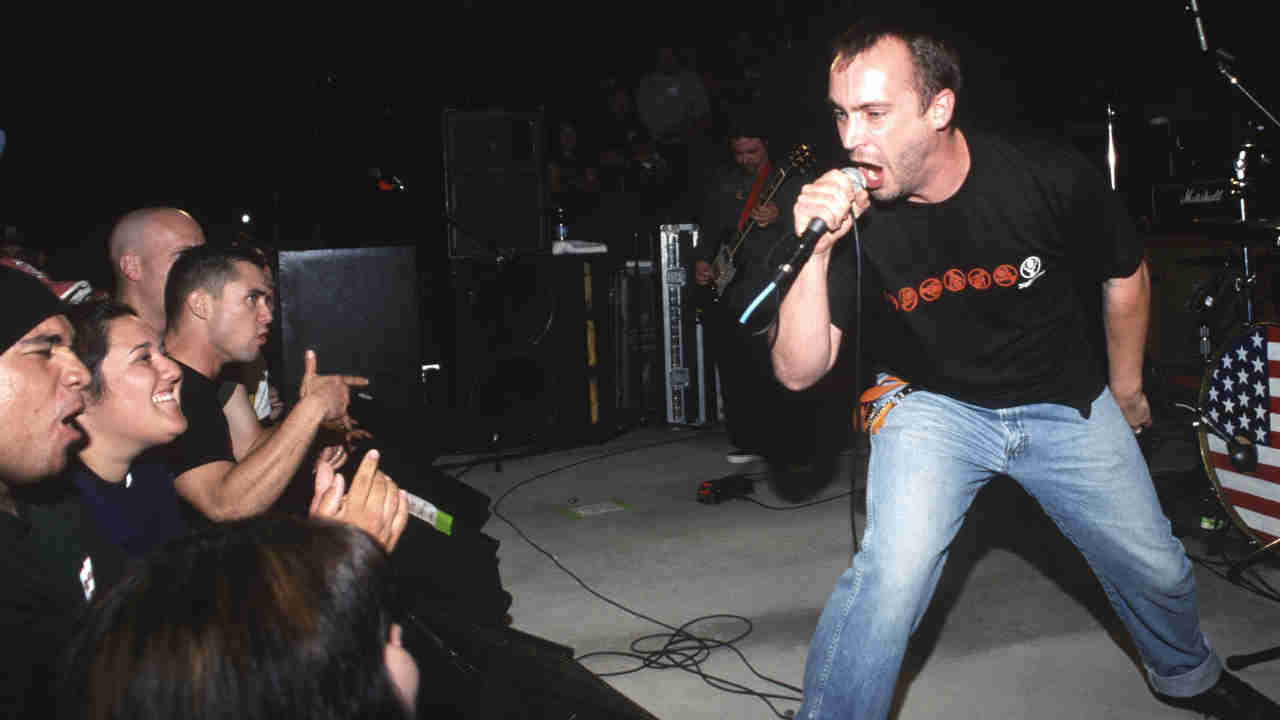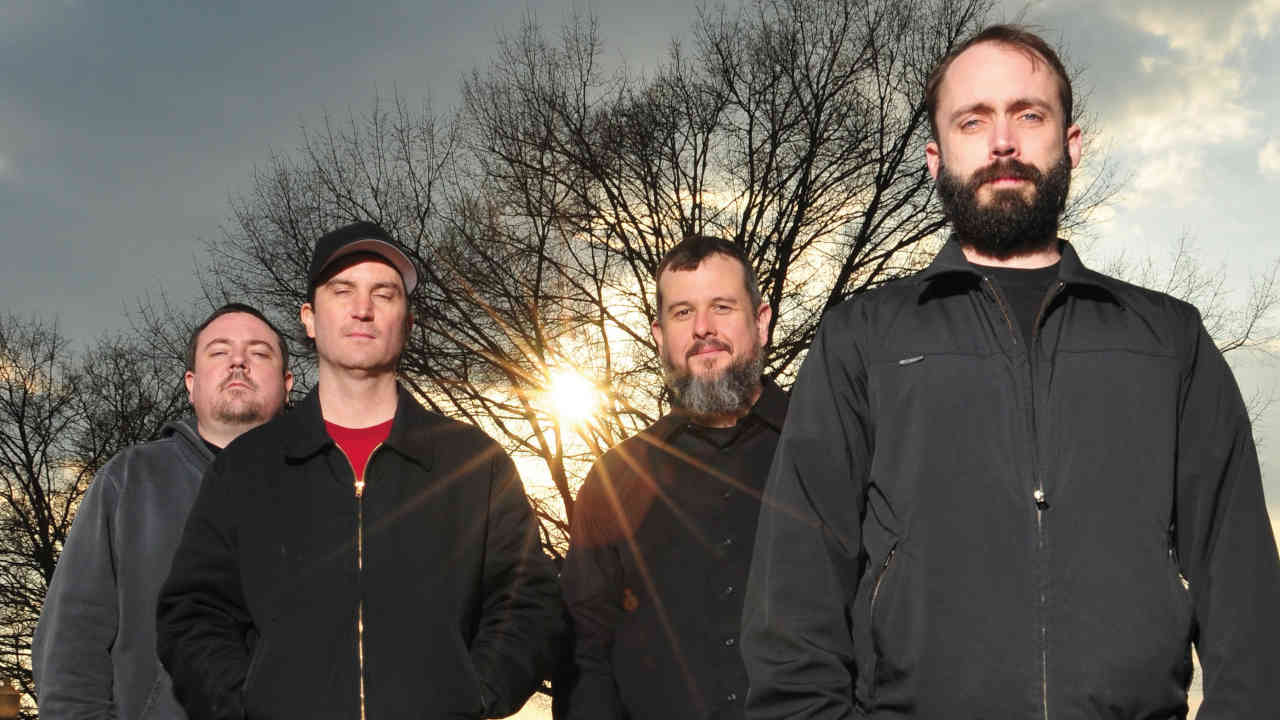“Getting validation from Beavis And Butt-head was much more gratifying. It showed that people do like this band even if your sales may not reflect fame and fortune”: How stoner rock enigmas Clutch became metal’s favourite weirdbeards
Straight out of Maryland, Clutch have spent 30 years following their own path and no one else’s

For more than 30 years, Clutch have been leaders in a field of one. With 13 studio albums plus countless EPs and live records under their belts to date, the Maryland four-piece’s unique mix of backwoods metal, danceable rhythms and vivid yet inscrutable lyrics set them apart from pretty much every other band. In 2012, frontman Neil Fallon looked back on their career to that point.
There’s a name for us Clutch fans: ‘Gearheads’. not so much fans, as disciples – devotees, believers, if you will. Obsessives, even. If Clutch had started a cult instead of a band in ’91 then make no mistake, there’d be an awful lot of crazies holed up in Maryland, West Virginia, waiting for the mothership to beam them up. They’re that good. Indeed, with two decades of music and nine studio albums, not including compilations and rarities, it’s no stretch to put them among the company of the greatest rock’n’roll bands of our time. Really, they’re that good.
Like all the true greats, whatever their influences, from hardcore to blues and beyond, there is something about Clutch that puts them in a genre of one, often copied, never bettered. Moreover, they’ve managed to retain that pre-internet mystique, the stuff that builds urban legend and fills websites: “What does that lyric mean? Where can I find that secret track?”
The geek element that draws record collectors like moths. It doesn’t hurt that frontman Neil Fallon, the son of a military father, is a lyrical genius. He’s what Bill Hicks would have called “a reader”; a lot of sci-fi, but keenly aware of politics, too smart for regular rock’n’roll and with the onstage aura of some snakehandling, backwoods, hellfire and damnation preacher. Oh yes, there would be a lot of us holed up in West Virginia, armed to the teeth and looking up at the night sky: “Tell us when, oh wise and heavily bearded one!” It’s probably a good thing they formed a band, though it may not have been wise to inflict an unrepentant Gearhead upon Mr Fallon for over an hour, with questions to spare.
“We were in grade school together, then we went to high school together,” begins Neil on the 20-year lineup that’s completed by guitarist Tim Sult, bass player Dan Maines and drummer Jean-Paul Gaster. “We had different manifestations of rock bands: one week we’d be into metal and the next it was hardcore, so we’d rename the band and redraw the logo. The music we were listening to was hard to get; you had to pursue bands like Minor Threat, even though we only lived 30 miles from DC. And that was not the popular music at our school – neither was Slayer! It was very much a minority of people into metal, punk rock and hardcore. In 1991 the band was called Glut Trip and they had a different singer, this guy named Roger, and he couldn’t make a show, so I got asked to fill in, only because I’d jammed with them a year prior in high school.”

By October 1991, the band, thankfully having changed their name to Clutch, put out their first record, a barbarically heavy four-track EP, on 7-inch vinyl, titled Pitchfork, on Inner Journey Records. Immediately, they stood out from the pack.
“We wrote those four songs in a couple of days. That was the first time I’d ever been in a recording studio,” recalls Neil. “The sounds you hear on the 7-inch is a lot of Prong, Bad Brains, Cro-Mags, maybe not obviously, but that’s what we were listening to. We were very into noise bands, labels like Amphetamine Reptile, and we were huge fans of Swans.”
Sign up below to get the latest from Metal Hammer, plus exclusive special offers, direct to your inbox!
Another EP followed in ’92, the colossal Passive Restraints on Earache. They had been getting interest from several labels including ATCO, East/West and some majors, and had no idea which way to go. Earache, being from England, was seen as ‘exotic’ and meant they’d be labelmates with Godflesh, who they loved.
“It was a very confusing time for us, as far as what a good business move would be,” admits Neil. “We just figured they [Earache] must know more about this kind of music. Thankfully it was just a one-off deal.”
Ironically for a band so drama-free, (just one lineup change when keyboard player Mick Schauer joined in 2005 and left in 2008, with no ill feelings) the one thing they’ve continuously had a problem with is labels. Their debut album, Transnational Speedway League, on East/West in 1993, was no exception: while Beavis and Butt-head were going righteously nuts over the video for A Shogun Named Marcus, the label had no clue what to do with them.
“That was always the case with us and labels,” agrees Neil. “Our exposure on mainstream media was always through a back channel, never through a topdown, ‘this is gonna be the band we push’ scenario. All those labels were signing bands like it was going out of style: they were dropping hair bands and signing punk bands, grunge bands, and everything in between, and we were one of those bands. Their hopes were that we were gonna be multi-platinum, and obviously that didn’t work out and we got dropped. We just scratched our heads and went, ‘What were they thinking in the first place?’
“In hindsight, we were all babes in the woods, going to these high-rise offices with multi-platinum records on the walls. As much as we considered ourselves down to earth and well grounded, it does confuse you. But getting validation from [Beavis And Butt-head creator] Mike Judge was much more gratifying and effective, because it showed that people do like this band even though your [sales] may not be reflecting a meteoric rise to fame and fortune.”
Written in two phases between New York and San Francisco’s Razor’s Edge studio, (“because that’s where the Melvins were recording, and we were huge fans”), Transnational Speedway League, the primal hardcore root of the band, remains a classic; so heavy and intense that urban myth insists they had to stop playing Binge And Purge because audiences would kick the crap out of each other.
“With any urban myth there’s an element of truth with a lot of exaggeration wrapped around it,” allows Neil. “It became one of those things where people wanted to hear it because we weren’t playing it. I think, because there’s a huge barrage of curse words at the end of it, it’s seen as a moshpit classic, and I can recollect that the day I wrote those lyrics was the day we recorded them. I hadn’t written anything for it and finally I locked myself in the bathroom of the hotel and wrote the lyrics up until 20 minutes before tracking. I think that’s how my frustration with the song manifested itself, but we always knew that we weren’t the kind of band that got off on seeing violence in the pit. Maybe I was trying to reflect angry bands because I liked that music, but I ran out of that juice really quickly and I realised that I couldn’t fake it. It’s exhausting! I think we realised that heavy doesn’t necessarily equate to angry, you can still have a good time while you’re doing it.”
And so Clutch evolved, their eponymous second album a stoner rock masterpiece. Seriously. And none of your dodgy council estate hash, neither; this is the shit Willie Nelson smokes. Your right to a functioning set of ears could be argued if you don’t own it.
“When I think back to that record,” says Neil, “we’d started touring quite a bit and we met other bands who introduced us to other bands, especially old bands, what are now considered your prototype stoner rock bands and classic rock bands. We started listening to a lot of that, Cream, ZZ Top, Mountain, bands that we listened to when we were really young and then dismissed when we got into punk. We realised that it was OK to like hardcore music and Black Sabbath – you weren’t gonna get in trouble.
“I hear a lot of warts on that record, but it’s also very dear to me because that set us in a direction that we’ve been on ever since. It was also a time when we started opening for a lot of bands on pretty kick-ass tours. Three that came one after another were Sepultura, Pantera then Marilyn Manson. Some people thought Marilyn Manson was a ridiculous tour, but that was one of the best tours we ever did. I guess that record was also where I started looking at lyrics as being a short story format.”

And oh, such tales of pirates and presidents, aliens and speed-fuelled truckers! By the time The Elephant Riders came along in 1998, Gear- heads had learned to go with it, and, often, to learn with it. The record company were clueless.
“Columbia took one listen to it and said, ‘No, this is not acceptable’,” says Neil. “They heard a lot of long songs with odd times and no obvious focus and they’re thinking, ‘What song’s gonna go on the radio?’ We were pretty put out by that, I won’t lie, and basically did another session in New York, and although good things came of it, we were frustrated because we were being treated like children. It’s not that it’s hard for me to listen to, but it was a bitch to make, and it wasn’t because of our own failings.”
Neil admits that, in hindsight, it’s “definitely a strange record”, but one where they stretched the boundaries of what they could do as a band. “I’m glad we did it, because it sounds very unique,” he says.
Perhaps adding to the conspiratorial nature of the band, three different versions of the album were released, with three different hidden bonus tracks. It kept the collectors interested, if not the record label. In 1999, Clutch released Jam Room on their own label.
“If you wanna call River Road Records a label,” Neil chuckles. “That was just a name that we put on the back of the record, but we sold it at shows and on the website. We were label-less and frustrated, so that record sounds like a beer can that got shook up and then the top popped off.”
In fairness, it’s not the easiest or most immediate Clutch album.
“Oh don’t get me wrong, it’s a bizarre record,“ laughs Neil. “I listen to it now and each song is very different, it’s not very cohesive. It’s like pages of a book that got torn out of several different chapters and jumbled all together, but it was therapeutic in a lot of ways, just to do whatever the fuck we wanted and see what happened. I think we were also trying to run away from the idea of a label saying that we had to have a three-and-a-half minute radio song. When you write songs like that too often it can become a very bad habit and we tried to go cold turkey!”
Ironically, much of the following album, 2001’s Pure Rock Fury, was probably exactly what the label was looking for, and even spawned a minor hit in Careful With That Mic, a ZZ Top-infused rap piss-take, allegedly aimed at Fred Durst (“Not true!” says Neil). By this point, though, Clutch were back on Atlantic. Why?
“Who knows?” shrugs the vocalist. “There was a lot of pessimism about what we were doing that was invading our ability to tour and think in a positive way. That really was a downer because we all knew we were writing good music, we just had to get past the music industry. We’d been hitting the road really hard, our manager had fucked off, and we were kind of lost, so we were back on Atlantic.”
Meanwhile Neil was banging his head against the wall, trying to come up with ideas.
“The recording process was difficult, I don’t know why... writers block, feast or famine,” he reflects. “Maybe that’s how you end up with the title ‘Pure Rock Fury’, which is more reflective of one’s self than anything else. It’s got some pretty straight-ahead song writing, it wasn’t nearly as complex as Elephant Riders, and I’m not dogging it, but sometimes albums also reflect things outside the album, and it’s hard for me to differentiate between the album and the life experience. It’s a mile post in our career; after that things changed quite a bit.”
Clutch got back to having fun with 2004’s Blast Tyrant. Suddenly it was easier to write songs and the band felt a renewed sense of purpose. With it came a more dance- able beat, a swing that saw the demographics for gigs change. It wasn’t just hairy guys watching Clutch anymore. Women were starting to like them too.
“That might have to do with the fact that it’s got a more consistent swing overall,” agrees Neil. “Even though that’s just a musical term that gets thrown around, I think that has a big influence on the way people interpret music, whether it’s super straight or super swung. The more swung it is, the more you can dance to it.
“It’s been a long road there!” he adds with a wry laugh. “For the first 15 years of the band, any girls in the audience were the girlfriends who were begrudgingly dragged there by their boyfriends.”

It’s perhaps a cruel irony that the most danceable track, The Mob Goes Wild, was also one of the rare occasions where Neil strayed from fiction into politics in his lyric writing. America had changed, the world had changed, and there was no second guessing how Neil felt about it. For once, you just had to read the lyrics.
“I’d always made it a point to be apolitical,” says Neil. “I think what I enjoy about music is escapism from reality and not hearing about some rock singer’s political opinion, but after 9/11, what I saw in the United States became so big in my mind, and it was happening before my eyes, all these evil doers and characters. I felt personally threatened by the likes of Dick Cheney, so he ended up in the song. I got flack for that, but I’m alright with it because it was a lot easier to sing your patriotic hymn at a Superbowl half-time show than it was to do that, and I’m glad I did. It was a strange time, and still is a strange time. Sometimes politically charged music can wear one down very quickly, but I think when it’s placed here and there it can be more effective.”
It could be argued that 2005’s Robot Hive/Exodus was no less contentious in places, continuing Neil’s love of science fiction, but seemingly having a little dig at religion, particularly on Burning Beard, the video for which was filmed in a church.
“Well, a lot of people say I have a preacher-like persona on stage, and maybe I do,” muses Neil. “I’ve never seen myself perform, but I took the word of Jeremy Hunt, who did the video. He said he’d talked to his pastor and the pastor was cool with us filming it in the church. It was a little awkward because I’m certainly not trying to tell anybody that what they believe in is wrong. That song got its influence from the Philip K Dick novels, particularly Valis. It’s not literal, but it’s inspired by that book.”
So did he have a religious upbringing?
“To a degree,” Neil allows. “My father was very involved in the church, but they’re not Bible-thumping, born-again evangelicals. Church has always been in my life one way or another until I became older. One thing that’s always intrigued me is the idea of science versus religion and how, particularly in the US, we like to consider ourselves forerunners in science, but at the same time we’ll also say that God created the heavens and Earth in seven days. The disparity between those two is a great place to have a conversation.”
And on that note, Clutch are one of the few bands to have written a song in binary!
“That initially started as a bolt out of the blue,” grins Neil of 10001110101. “I was gonna change it and never did. I didn’t know this until after the song got released, but there’s a whole world of people who are really into binary code, and decoding binary code into visual and musical representations: I got all sorts of emails, like ‘Does it mean this or that?’, and the answer was, sadly, always no, because I just threw out a random series of numbers!”
So, not a coded message to Gearheads, then. No map reference for the secret bunker. But you never know. And one of the joys of Clutch, aside from their ever-evolving music, is that you want to know. The Rapture Of Riddley Walker, for instance, from 2007’s From Beale Street To Oblivion, takes its inspiration from Russell Hoban’s post-apocalyptic novel Riddley Walker. You know you want to read it now. Unfortunately, it’s around this time that we realise it’s simply not possible to cover every- thing in every detail. Why did they rerecord One Eye Dollar? How did Cattle Car become Cypress Grove? Who are the vegans and what did they attack? There’s just too much material to do any more than fill in a few blanks. We haven’t even touched on Slow Hole To China: Rare And Unreleased yet. So many great, great songs....
“Sometimes I feel a bit irresponsible not being able to instantly recollect them all,” confesses Neil. “You’re speaking of albums and songs while we’re out on the road concentrating on a 45 minute set. To look back on 20 years of writing music, you can be overwhelmed, and it’s certainly hard to talk about because it’s emotional and also technically overwhelming.”
We should at least mention the last album, 2009’s Strange Cousins From The West though, right?
“When I hear that record, I hear myself being intrigued by horror stories and I think that crept into it quite a bit,” says Neil.
And that’s all you get for now. But maybe that’s all you need. We’ll save you a seat on the mothership.
Originally published in Metal Hammer magazine issue 227, January 2012
A veteran of rock, punk and metal journalism for almost three decades, across his career Mörat has interviewed countless music legends for the likes of Metal Hammer, Classic Rock, Kerrang! and more. He's also an accomplished photographer and author whose first novel, The Road To Ferocity, was published in 2014. Famously, it was none other than Motörhead icon and dear friend Lemmy who christened Mörat with his moniker.


